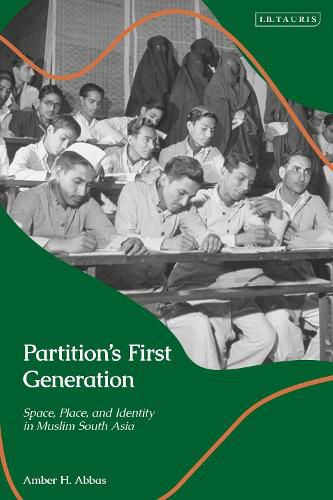Readings Newsletter
Become a Readings Member to make your shopping experience even easier.
Sign in or sign up for free!
You’re not far away from qualifying for FREE standard shipping within Australia
You’ve qualified for FREE standard shipping within Australia
The cart is loading…






The Mohammadan Anglo-Oriental College (MAO), that became the Aligarh Muslim University (AMU) in 1920 drew the Muslim elite into its orbit and was a key site of a distinctively Muslim nationalism. Located in New Dehli, the historic centre of Muslim rule, it was home to many leading intellectuals and reformers in the years leading up to Indian independence. During partition it was a hub of pro-Pakistan activism. The graduates who came of age during the anti-colonial struggle in India settled throughout the subcontinent after the Partition. They carried with them the particular experiences, values and histories that had defined their lives as Aligarh students in a self-consciously Muslim environment, surrounded by a non-Muslim majority.
This new archive of oral history narratives from seventy former AMU students reveals histories of partition as yet unheard. In contrast to existing studies, these stories lead across the boundaries of India, Pakistan and Bangladesh. Partition in AMU is not defined by international borders and migrations but by alienation from the safety of familiar places. The book reframes Partition to draw attention to the ways individuals experienced ongoing changes associated with partitioning -the process through which familiar spaces and places became strange and sometimes threatening-and they highlight specific, never-before-studied sites of disturbance distant from the borders.
$9.00 standard shipping within Australia
FREE standard shipping within Australia for orders over $100.00
Express & International shipping calculated at checkout
The Mohammadan Anglo-Oriental College (MAO), that became the Aligarh Muslim University (AMU) in 1920 drew the Muslim elite into its orbit and was a key site of a distinctively Muslim nationalism. Located in New Dehli, the historic centre of Muslim rule, it was home to many leading intellectuals and reformers in the years leading up to Indian independence. During partition it was a hub of pro-Pakistan activism. The graduates who came of age during the anti-colonial struggle in India settled throughout the subcontinent after the Partition. They carried with them the particular experiences, values and histories that had defined their lives as Aligarh students in a self-consciously Muslim environment, surrounded by a non-Muslim majority.
This new archive of oral history narratives from seventy former AMU students reveals histories of partition as yet unheard. In contrast to existing studies, these stories lead across the boundaries of India, Pakistan and Bangladesh. Partition in AMU is not defined by international borders and migrations but by alienation from the safety of familiar places. The book reframes Partition to draw attention to the ways individuals experienced ongoing changes associated with partitioning -the process through which familiar spaces and places became strange and sometimes threatening-and they highlight specific, never-before-studied sites of disturbance distant from the borders.